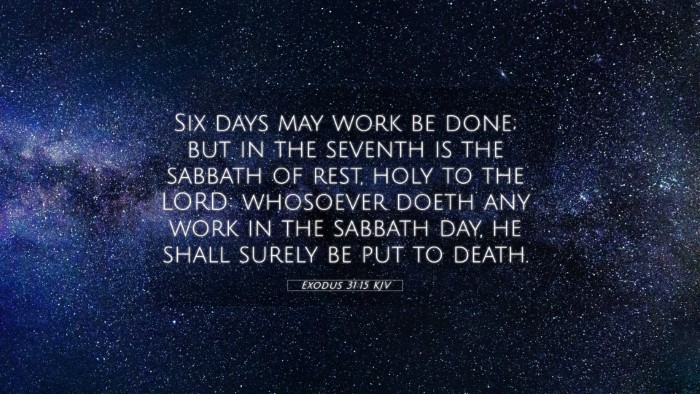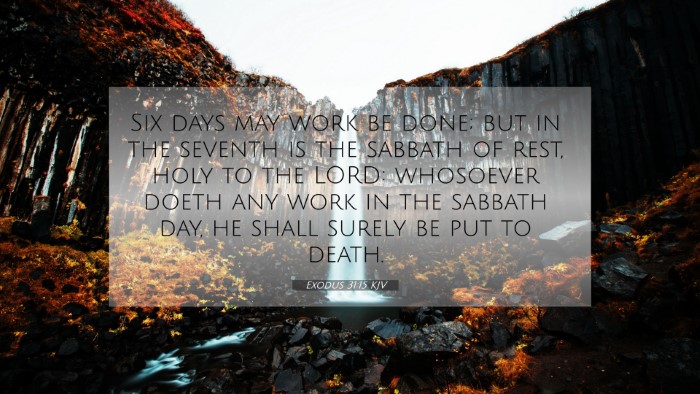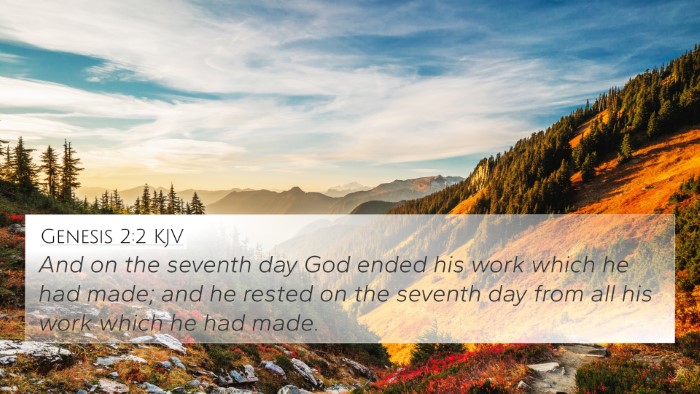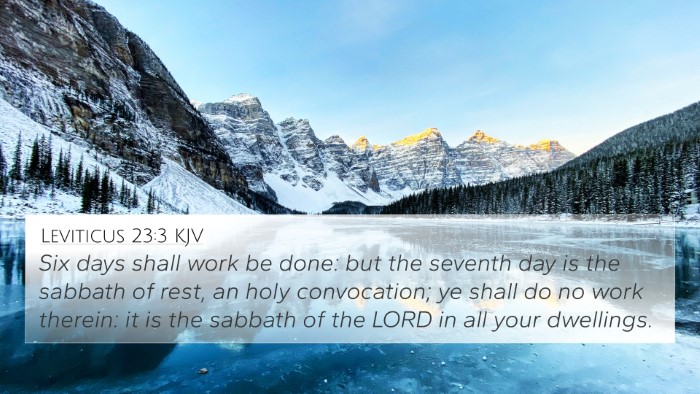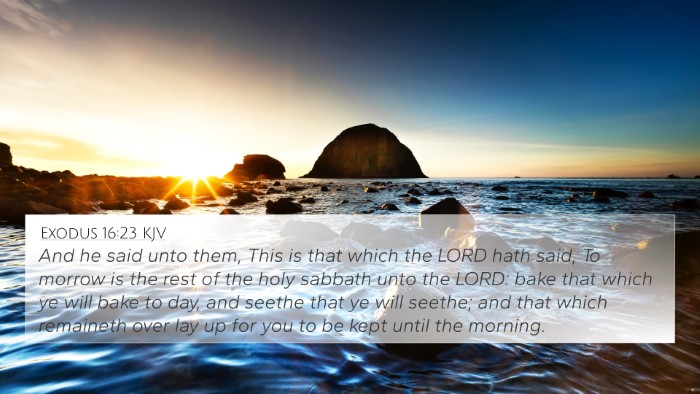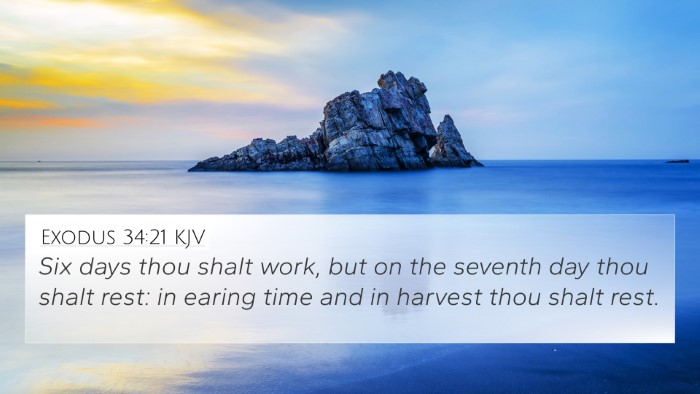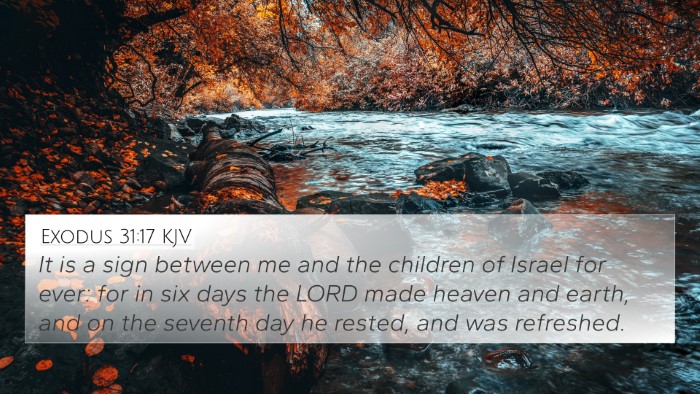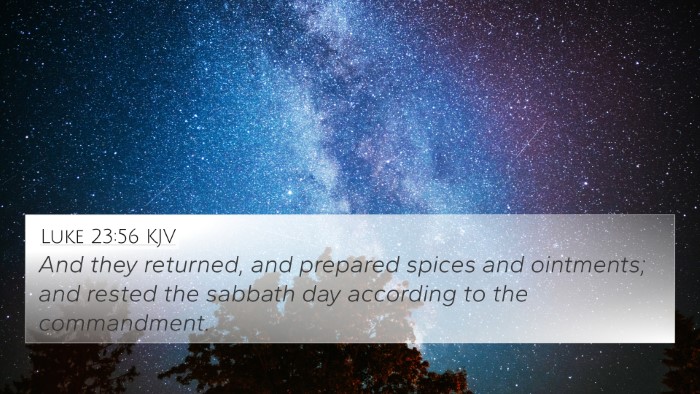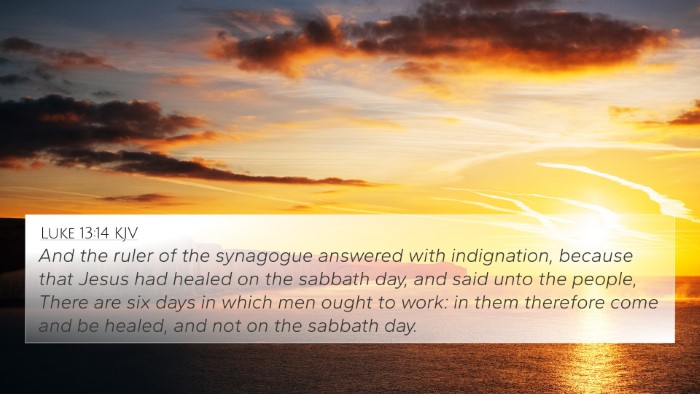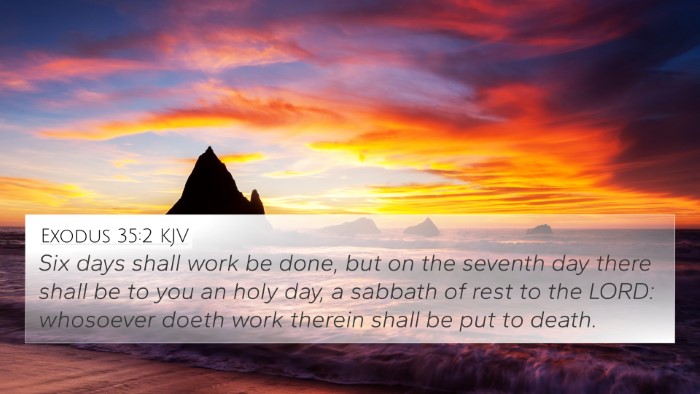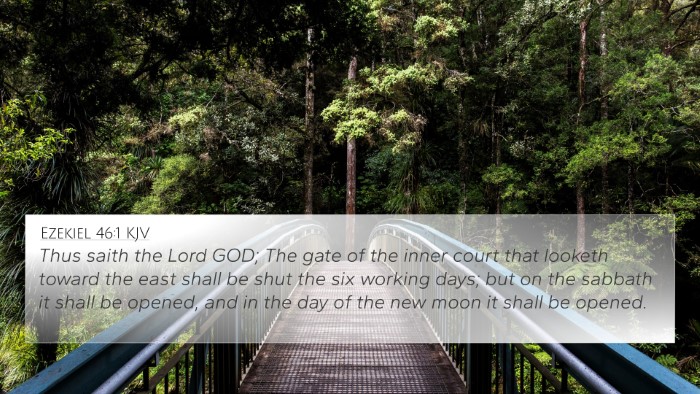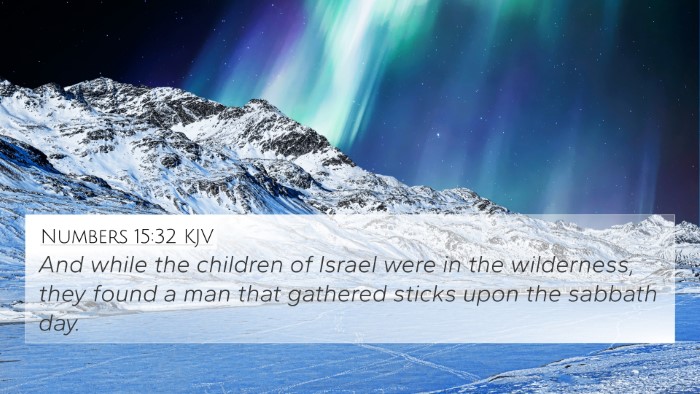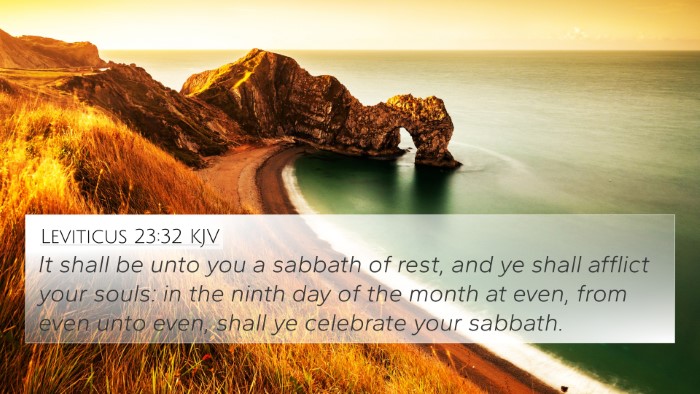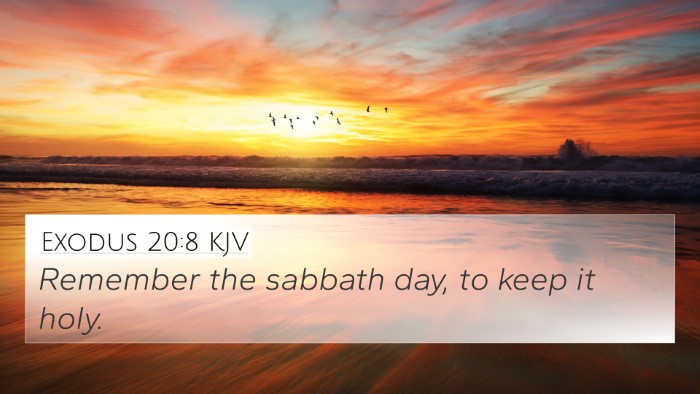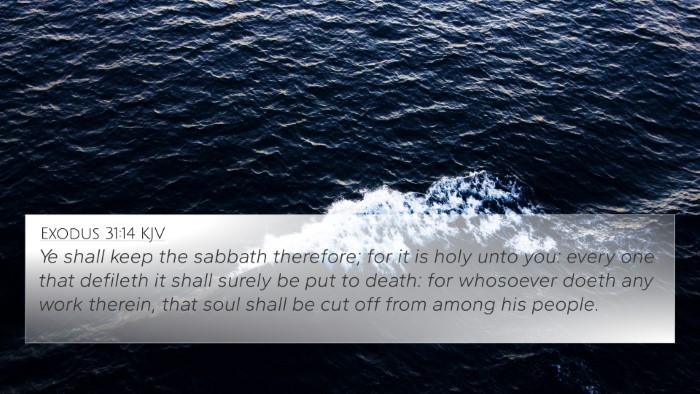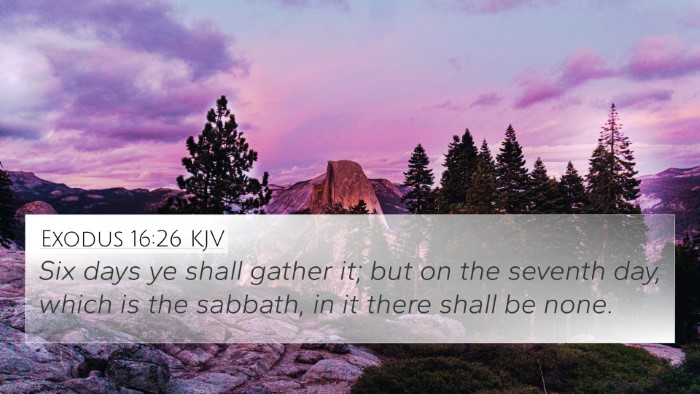Understanding Exodus 31:15
Exodus 31:15 states: "Six days shall work be done; but on the seventh is the sabbath of rest, holy to the Lord: whosoever doeth any work in the sabbath day, he shall surely be put to death."
This verse underscores the significance of the Sabbath as a day of rest prescribed by God. The commandment emphasizes both the sacredness of the Sabbath and the consequences of violating it, reflecting the seriousness with which God regards this holy day.
Meaning and Context
In the context of Exodus, this command is part of a larger set of laws given to the Israelites regarding their conduct as a holy nation. Matthew Henry emphasizes that the Sabbath is not only a time for physical rest but also a spiritual necessity for mankind, set apart for worship and reflection on God's creation.
Albert Barnes highlights that the command is directed specifically towards the Israelites, underscoring a covenant relationship between them and God. The severity of punishment for breaking the Sabbath indicates its importance in maintaining that relationship.
Adam Clarke provides insights into the cultural and historical context of ancient Israel, where work was a necessity for survival. The establishment of the Sabbath provided a divine pause, a reminder of God's creative work, and an opportunity for spiritual renewal. The focus is on the harshness of the penalty in order to reinforce obedience and respect for God's commandments.
Key Themes
-
The Sanctity of the Sabbath: The Sabbath is viewed as a holy day, critical for worship and reflection.
-
God's Authority: The command illustrates God's sovereign authority over His people and the importance of obedience.
-
Consequences of Disobedience: The strict penalty for working on the Sabbath demonstrates the seriousness of God's law.
-
Rest as a Divine Command: The day of rest serves not only physical needs but also spiritual renewal.
Cross-References for Exodus 31:15
In understanding Exodus 31:15, it is beneficial to explore various Bible verses that connect with its themes. Below are key cross-references that highlight these connections:
- Genesis 2:2-3 - God's rest on the seventh day establishes the foundation for the Sabbath.
- Exodus 20:8-11 - The Fourth Commandment reiterating the Sabbath rest and the reason for it.
- Leviticus 23:3 - Description of the Sabbath as a day of rest and a holy convocation.
- Deuteronomy 5:12-15 - A restatement of the Sabbath commandment, emphasizing the liberation of Israel from Egypt.
- Isaiah 58:13-14 - Instructions on how to honor the Sabbath, linking it to delight in the Lord.
- Mark 2:27 - Jesus teaches that the Sabbath was made for man, not man for the Sabbath, emphasizing its purpose.
- Hebrews 4:9-10 - Discusses the spiritual rest that comes from God, connecting it to the Sabbath principle.
Comparative Bible Analysis
When conducting a comparative Bible verse analysis, Exodus 31:15 invites examination alongside other scriptures that discuss the Sabbath and its observance. It illustrates a continuity of theme throughout the Bible regarding rest, divine command, and community responsibility.
The concept of the Sabbath resonates through both the Old and New Testaments, creating a dialogue between the practices of ancient Israel and the teachings of Jesus and the apostles. For instance, by linking the teachings in the Gospels with the Law given in Exodus, we can see how the spirit of the Sabbath is maintained while contextually adapting to new covenant understanding.
Conclusion
Exodus 31:15 serves as a powerful reminder of the importance of rest and worship in the life of a believer. As we delve deeper into the significance of this commandment through Bible verse cross-references, we gain a broader understanding of God's desire for His people to experience spiritual renewal and the implications of disobedience to His divine commands.
Utilizing tools for Bible cross-referencing can aid in uncovering these connections. By studying the Bible as a cohesive narrative, believers can appreciate the inter-Biblical dialogue and how the themes of rest, holiness, and obedience resonate across both Testaments.
Further Study
As you explore the connections between Biblical texts, consider the following approaches:
- Use a Bible concordance to find related verses and their contexts.
- Explore commentaries such as those by Matthew Henry or Adam Clarke for deeper insights.
- Engage in cross-reference Bible study methods to identify recurring themes and teachings.
- Reflect on how the observance of the Sabbath impacts modern Christian practice.

